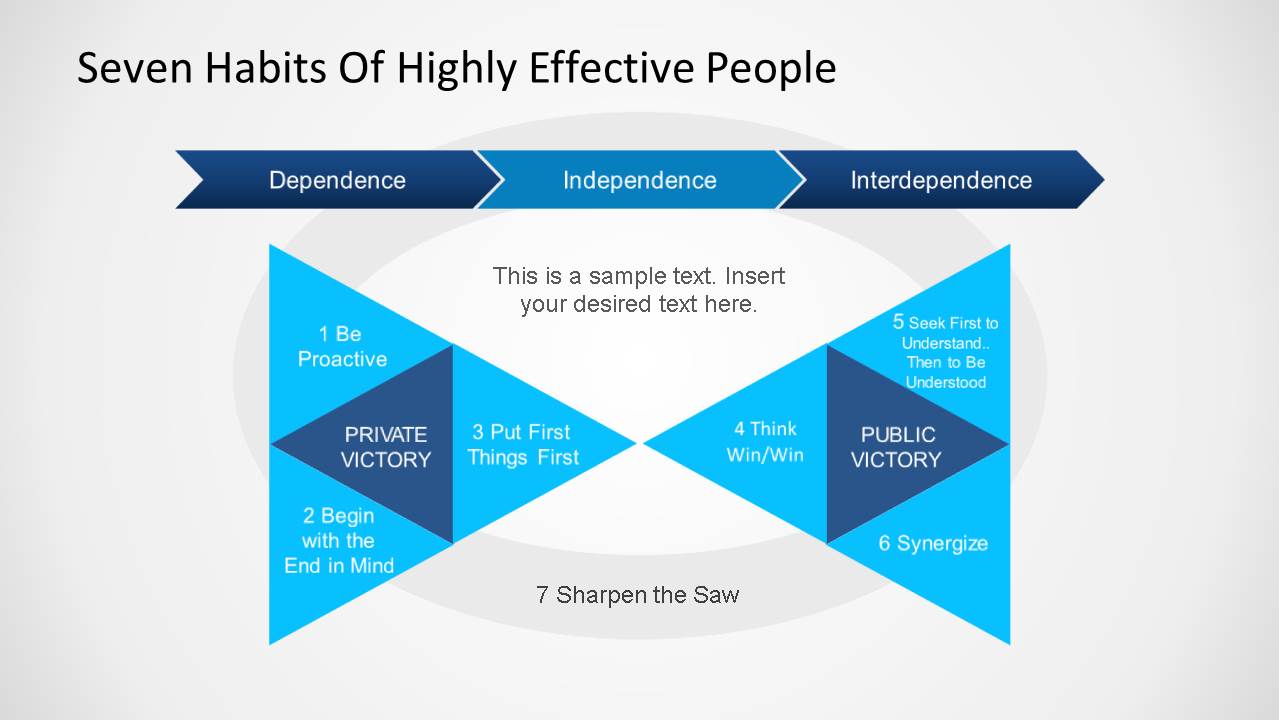

- Stephen covey 7 habits of successful people how to#
- Stephen covey 7 habits of successful people movie#
- Stephen covey 7 habits of successful people trial#
You may also develop a Lose/Lose paradigm if you’re very dependent and have no sense of personal direction, so you think that if you’re unhappy then others should be, too (think: misery loves company). Lose/Lose is the result of getting so focused on the demise of your enemy that you become blind to everything else, including your own well-being. When two people with a Win/Lose paradigm get in a standoff, their attitudes can devolve into a vindictive Lose/Lose mentality, meaning that you want the other person to lose so badly that you are willing to take a hit as well. Lose/Lose: If I Can’t Win, Neither Can You People with a Lose/Win mindset lose not only in their interactions, but also in their own well-being: They tend to suppress a lot of feelings, which can fester and bubble up in anger, resentment, cynicism, and psychosomatic illnesses that can especially affect the respiratory, nervous, and circulatory systems. Recognizing these situations is important to understanding habit 4: think win/win. Leaders with this paradigm have a permissive, indulgent style of leadership. They generally want to appease and gain acceptance by the other person, and they tend to be intimidated by others’ strengths and shy away from expressing their own wants and feelings. People with the Lose/Win paradigm are more interested in taking the path of least resistance than getting what they want. While there are situations when a Win/Lose approach is appropriate, most of life calls for cooperation, not competition. Most people have a deeply embedded Win/Lose mentality that’s taught early on and reinforced through different life experiences. Sports, school, and sibling rivalries are think win/win examples of deeply embedded forms of the win/lose paradigm. Leaders with the Win/Lose mentality use an authoritarian style of leadership people with this mindset tend to use their authority, power, status, or personality to get what they want. The Win/Lose paradigm makes everything a competition, making it seem that one person’s success must come at the expense of someone else’s success.

Eventually both parties can reach a solution that neither could have come up with on her own.
Stephen covey 7 habits of successful people how to#
You also must listen carefully and genuinely try to understand the other person’s perspective and goals, then explicitly and respectfully express your own point of view (we’ll go into detail about how to do this in Habit 5).

It often requires you to persist in dialogues longer, even when it feels you’ve reached an impasse. Reaching a habit 4: think Win/Win resolution can be difficult, and sometimes feels impossible. Stephen Covey’s think win/win paradigm can help us do that. It’s important to recognize when, where, and how to use it. It is the goal in habit 4: think win/win to be enabled to enact the win/win paradigm as much as possible. There are six paradigms for difficult interactions. The Six Paradigms of Habit 4: Think Win/Win People with a habit 4: think win/win frame of mind value cooperation over competition and believe that there is plenty - of money, success, happiness, and good fortune - to go around. Habit 4: think win/win is one of the 7 habits that aims to find a solution that benefits both sides, where everyone is happy with the decision and committed to the plan.
Stephen covey 7 habits of successful people movie#
Interactions between people constantly include some sort of negotiation, big or small: Where are we going to dinner? What movie are we going to watch? How much will you sell your product for? How much will you buy it for? Habit 4: think win/win is all about finding resolutions.
Stephen covey 7 habits of successful people trial#
Like this article? Sign up for a free trial here. Shortform has the world's best summaries of books you should be reading. This article is an excerpt from the Shortform summary of "The 7 Habits of Highly Effective People" by Stephen Covey.


 0 kommentar(er)
0 kommentar(er)
